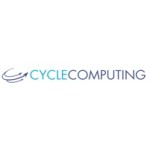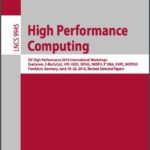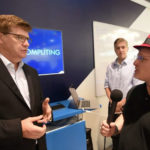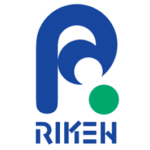Today French Startup Calyos launched a kickstarter funding project for the NSG S0, “the World’s First Fanless Chassis for High Performing PC.” The secret behind the Calyos fanless gaming PC chassis is phase-change cooling through loop heat pipes. Used in Datacenter servers, they absorb the heat from the hot components and move it passively to the edges of the case, where heat can be easily removed with an air or liquid heat exchanger.
Dell EMC & Cycle Computing to offer Cloud Software and Services for HPC
Today Cycle Computing announced that Dell EMC will offer its software and services as an option with Dell EMC HPC Systems.
At Dell EMC, we are constantly looking for the best ways to serve our customers, and Cycle Computing is a valuable addition to our HPC offerings,” said Jim Ganthier, senior vice president, Validated Solutions, and HPC organization, Dell EMC. “With Cycle, Dell EMC will be the first to offer ‘crate to cloud’ for HPC in a matter of hours and will help our customers accelerate time to results while reducing cost and complexity.”
ISC 2016 Workshop Papers Available as Free Download
Workshop Papers from ISC 2016 are now available as a free download. “The 21 workshops were held on June 26, 2016 at the Frankfurt Marriott Hotel with over 600 registered attendees, about 170 presentations, and over a dozen panel discussions. These workshops provided a focused, in-depth platform with presentations, discussions, and interaction on topics related to all aspects of research, development, and application of large-scale, high-performance experimental and commercial systems.”
Video: Cycle Computing Works with Dell to Deliver More Science for More Users
In this this video from ISC 2016, Tim Carroll describes how Cycle Computing is working with Dell Technologies to deliver more science for more users. Cycle Computing’s CycleCloud software suite is the leading cloud orchestration, provisioning, and data management platform for Big Compute, Big Data, and large technical computing applications running on any public, private, or internal environment.
Nvidia Donates DGX-1 Machine Learning Supercomputer to OpenAI Non-profit
This week Nvidia CEO Jen-Hsun Huang hand-delivered one of the company’s new DGX-1 Machine Learning supercomputers to the OpenAI non-profit in San Francisco. “The DGX-1 is a huge advance,” OpenAI Research Scientist Ilya Sutskever said. “It will allow us to explore problems that were completely unexplored before, and it will allow us to achieve levels of performance that weren’t achievable.”
Raj Hazra Presents: Driving to Exascale
Raj Hazra presented this talk at ISC 2016. “As part of the company’s launch of the Intel Xeon Phi processor, Hazra describes how how cognitive computing and HPC are going to work together. “Intel will introduce and showcase a range of new technologies helping to fuel the path to deeper insight and HPC’s next frontier. Among this year’s new products is the Intel Xeon Phi processor. Intel’s first bootable host processor is specifically designed for highly parallel workloads. It is also the first to integrate both memory and fabric technologies. A bootable x86 CPU, the Intel Xeon Phi processor offers greater scalability and is capable of handling a wider variety of workloads and configurations than accelerator products.”
Video: HPE Enhances Software Stack for High Performance Computing
In this video from ISC 2016, Dave Sundstrom from Hewlett Packard Enterprise describes the newly enhanced HPE Software Stack for High Performance Computing. “The HPE Core HPC Software Stack is a complete software set for the creation, optimization, and running of HPC applications. It includes development tools, runtime libraries, a workload scheduler, and cluster management, integrated and validated by Hewlett Packard Enterprise into a single software set. Core HPC Stack uses the included HPC Cluster Setup Tool to simplify and speed the installation of an HPC cluster built with HPE servers.”
Video: Hewlett Packard Enterprise Moves Forward with HPC Strategy at ISC 2016
At ISC 2016, HPE introduced new high-performance computing solutions that aim to accelerate HPC adoption by enabling faster time-to-value and increased competitive differentiation through better parallel processing performance, reduced complexity, and faster deployment time. “By combining these latest advancements in Intel Scalable System Framework with the scalability, flexibility and manageability of the HPE Apollo portfolio, customers will gain new levels of performance, efficiency and reliability. In addition, customers will be able to run HPC applications in a massively parallel manner with minimal code modification.”
ARM to Power New RIKEN Supercomputer
ARM processors will provide the computational muscle behind one of the most powerful supercomputers in the world, replacing the current K computer at the RIKEN Advanced Institute for Computational Science (AICS) in Japan. During the ISC conference, Fujitsu released details of the new system during a presentation with Fujitsu vice president Toshiyuki Shimizu. Shimizu stated that the “post K” system, which is set to go live in 2020, will have 100 times more application performance than the K supercomputer.
Video: HPE Apollo 6500 Takes GPU Density to the Next Level
In this video from ISC 2016, Greg Schmidt from Hewlett Packard Enterprise describes the new Apollo 6500 server. With up to eight high performance NVIDIA GPUs designed for maximum transfer bandwidth, the HPE Apollo 6500 is purpose-built for HPC and deep learning applications. Its high ratio of GPUs to CPUs, dense 4U form factor and efficient design enable organizations to run deep learning recommendation algorithms faster and more efficiently, significantly reducing model training time and accelerating the delivery of real-time results, all while controlling costs.













